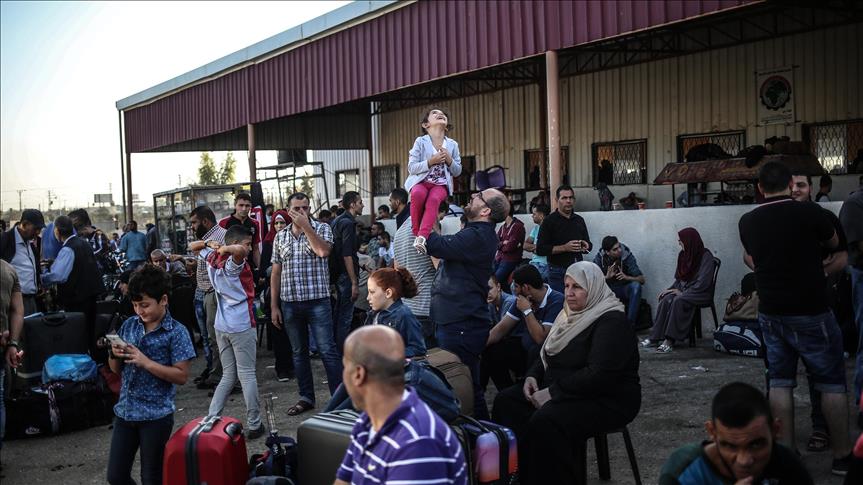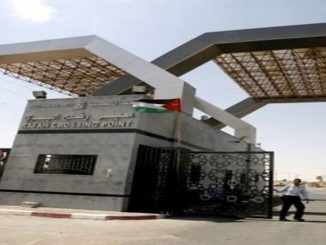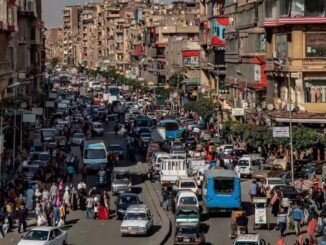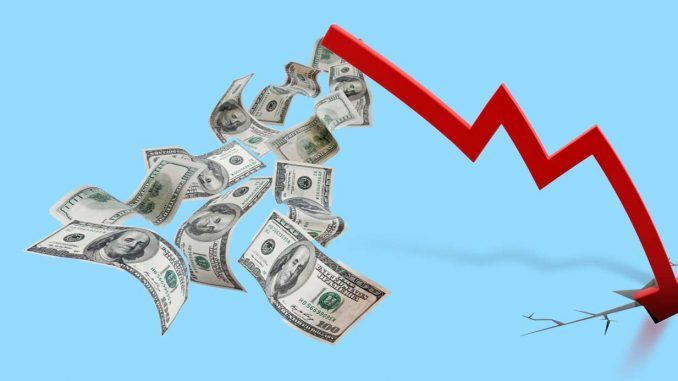
The high licensing fees on businesses in Egypt may make the prospect of their full closure loom large in the horizon.
More than two months ago, the government said owners of dozens of commercial and industrial outlets should get approval from the security services in order to do their work. Moreover, the high licensing fees can ultimately lead to the closure of businesses.
Here is a true story that was narrated by an Egyptian Twitter user and has been circulated on social networking sites, before the tweet was removed and the whole Twitter account deleted!!
The story, narrated by a Twitter account named “Ahmed Stainless”, is about a businessman defined as “owner of a stainless-steel factory”:
“Today has witnessed the last piece of work that our factory has finished, in its last working day in Egypt, and even “the last nail to come out of the factory”.
The Twitter activist narrates this true story about a local Egyptian factory that over eight years used to manufacture all kinds of packaging machines, “which Egypt usually imports from China, Turkey, Italy, France and the United States”.
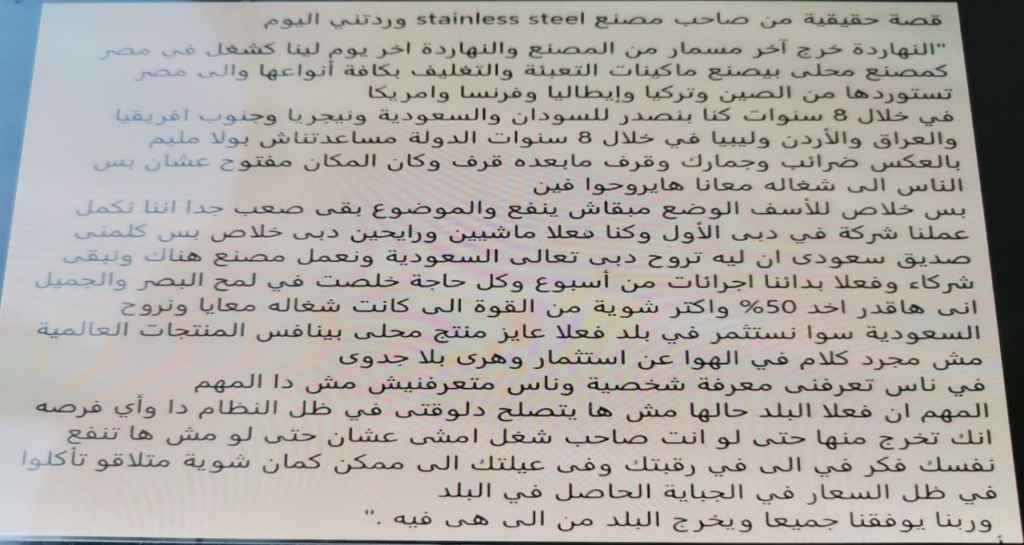
“The factory also used to export part of its production of packaging machines to Sudan, Saudi Arabia, Nigeria, South Africa, Iraq, Jordan and Libya over 8 years.”
“However, the state did not provide any financial assistance to us; but on the contrary, it imposed exorbitant taxes and customs fees, and clamped down on us.”
“The only motive for keeping the factory in operation was to secure jobs for the workers and ensure their continuity; otherwise, where can they find another job, in light of the harsh economic conditions that Egypt is currently experiencing.”
“But unfortunately, the situation is no longer possible to bear, as everything has become too difficult.”
“We were about to start a business in Dubai and transfer all our activity there, when a Saudi friend called me, wondering why I intended to go to Dubai, not to Saudi Arabia, and offered me partnership, building a factory and starting activity in the kingdom.”
“We actually started procedures a week ago, and everything was quickly fulfilled; and the wonderful thing is that I have been able to take 50% or a little more of the manpower that I used to work with, to go to Saudi Arabia together and invest in a country that really wants to produce a perfect local product so that it can compete with products all over the world.”
The tweet continued to laud the way Gulf countries encourage local production on the ground, not just through talk and propaganda about investment, and futile nonsense.
“There are some people who personally know me and others that do not know me, but this is not the important thing. The important thing is that the grave situation this country is now experiencing will not change or even get improved under this regime,” he said.
The disappointed factory owner then advised Egyptians to catch any opportunity to get out of the country, including businessmen, amid the regime’s taxation frenzy – so that they may save themselves and their families.
“May God help us all and get the country out of the hard situation it is experiencing,” here ends the story, and Mr. Stainless ends his tweet that was later deleted and his account completely removed.
It is to be mentioned that Mr. Ahmed Stainless had identified himself on Twitter as an Egyptian engineer who works in manufacturing machines “that Egypt imports from abroad”, thus saving the country’s hard currency.
The Egyptian economy has been severely hit by successive global crises over the past three years.
In addition to the government’s bad management of the Egyptian economy, Covid-19 deprived the economy of billions of dollars in tourism revenues, cost the government billions of dollars to fund measures to rescue the economy and some economic activities, and wore out the national health system.
The virus outbreak also caused millions of people to lose their jobs, including in the tourism sector and in the small business sector.
The war in Ukraine is also dealing a deadly blow to the Egyptian economy, having forced food import-dependent Egypt to pay more for its imports.
The war also deprived Egypt of millions of tourists who used to visit it from the two countries implicated in fighting, Russia and Ukraine.
The resultant flight of billions of dollars in foreign assets has threatened the prospects of the Egyptian economy and forced Egyptian authorities to request billions of dollars in loans from international crediting institutions, including the International Monetary Fund.
The Ukraine war has negatively affected foreign currency reserves at the Central Bank of Egypt, especially because of its impact on the tourism sector.
It has also affected producers who found it hard to get the imports they needed.
Egypt also launched into a massive selling of its assets to oil-rich Arab nations in attempt to escape the devastating economic consequences of the government’s wrong economic policy and make for the impact of Covid-9 and the Russian-Ukrainian war and bring in the required liquidity to purchase the needs of its people from the international market and meet its international obligations.

